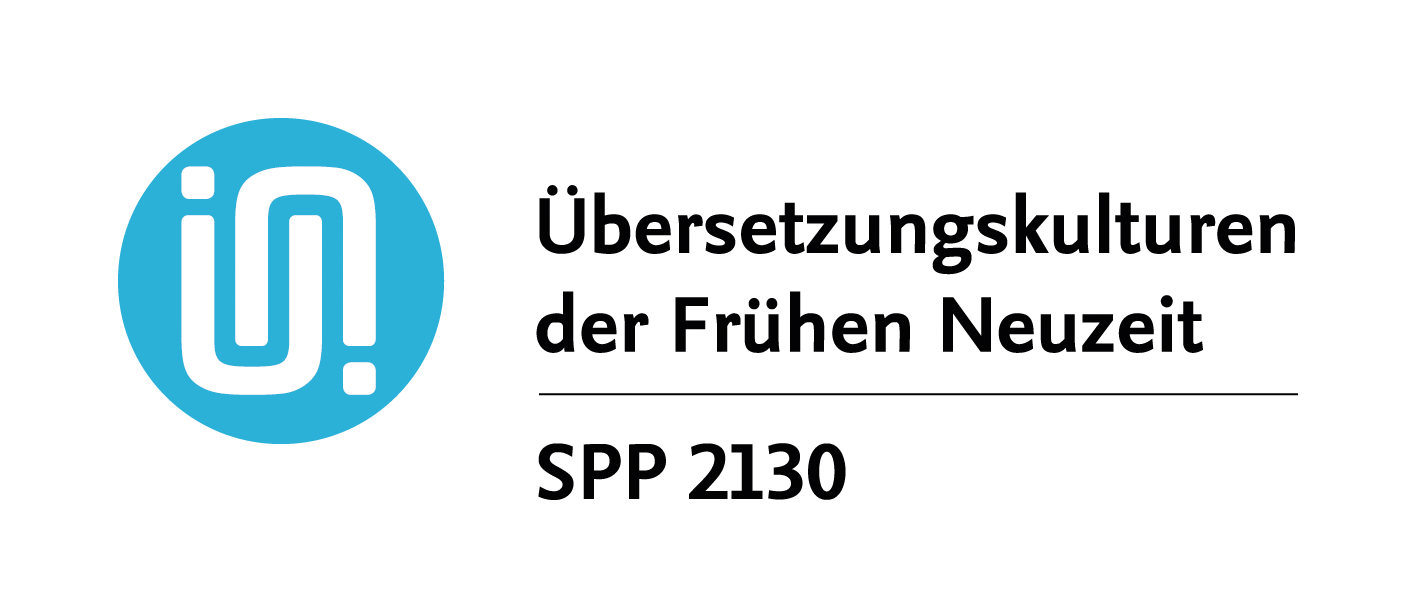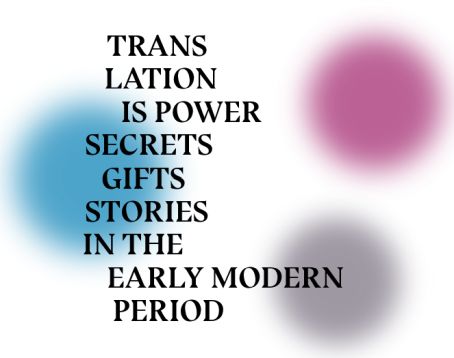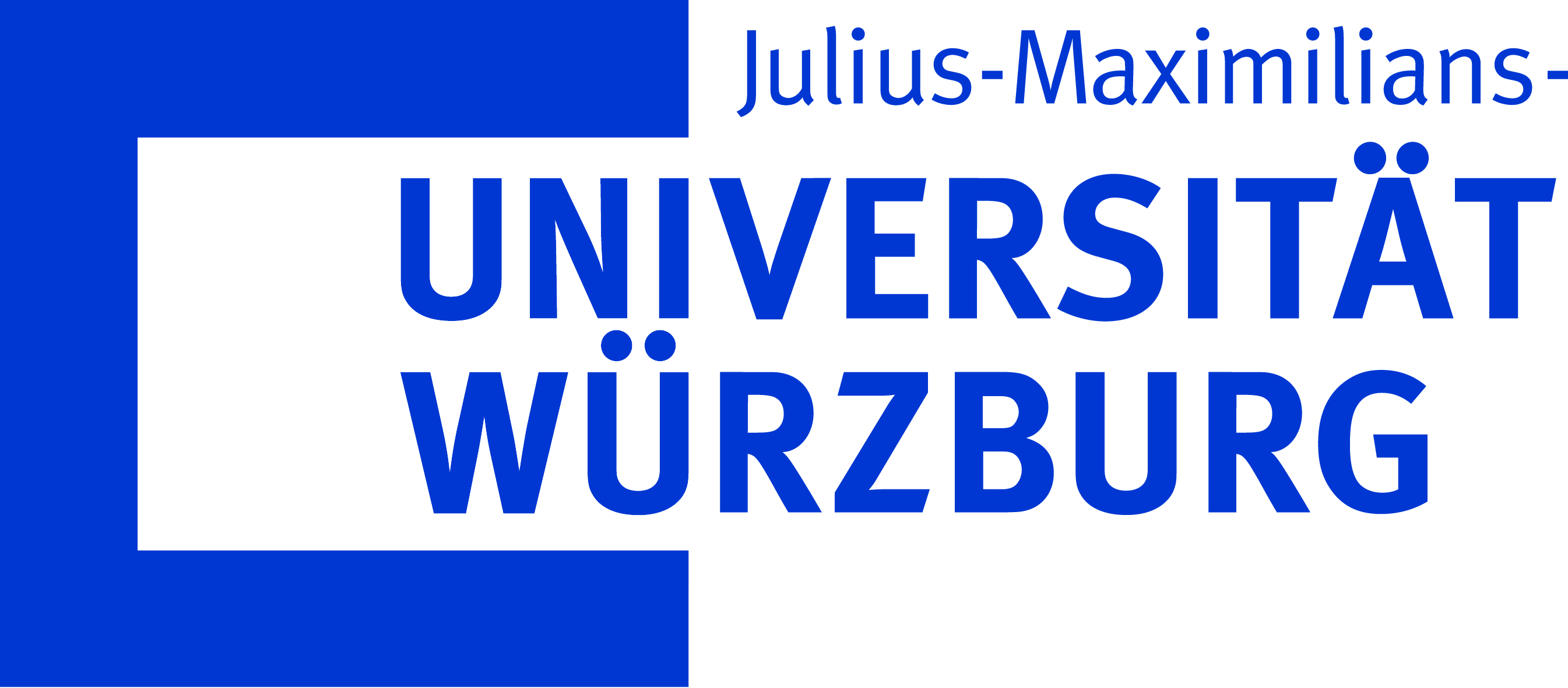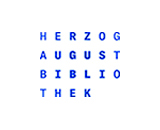Events
Events
The most important event format will be the annual conferences, which will be devoted primarily to the presentation and discussion of the research activities. These conferences will serve to reinforce the overall cluster concept once a year as a basis for introducing research impulses across section boundaries and opening up perspectives for cooperation. In addition to the conferences, there will also be thematic workshops, to be organized by the TransUnits and individual projects as well as gatherings at which members of the SPP present matters of relevance for the cluster.
Since the beginning of the third project year, there is a new format: Digital Discussions. In order to take advantage of the positive side effects of the increasing digitalisation of research and teaching, which have been accelerated by the Covid pandemic, and at the same time to intensify the exchange among each other, SPP 2130 is now continuing its thematic discussions between the annual conferences. At regular intervals, on the first Thursday of each month, we meet online with guest speakers to discuss various aspects of translation cultures or to provide in-depth insights into current project work. Not only SPP members, but also all associates and interested parties are cordially invited. To receive the access data, please contact the office.
You will find dates and announcements under current topics and in the calendar.
Reports
6th Annual Conference: The Early Modern Period as an Age of Translation: Review and Stocktaking of a Research Programme
11.–13. Sept. 2024, HAB Wolfenbüttel
The Priority Programme 2130 launched by the German Research Foundation in 2018 used its sixth and final annual conference to reflect on and validate the programme’s central assertion in the framework of in-depth discussion. The conference publication will be devoted to the SPP’s core hypothesis—that the Early Modern period is to be conceived of as an era of translation—while in the process mirroring its multiperspectival nature. Lectures by the two Mercator Fellows Yen‐Maï Tran‐Gervat (Sorbonne Nouvelle, Paris) from the field of comparative studies in Romance literature, and Jewish studies scholar Iris Idelson-Shein (Ben-Gurion University of the Negev) enhanced the various concepts of the epoch in question.
The conference also focussed on reflecting on and taking stock of the tiered concept of translation that served as the research programme’s working basis for six years—and was discussed as intensively at the last conference as it had been at the first. Within this context, the emphasis shifted from the question “Can there even be translation above and beyond ‘translation proper’?” to “Isn’t a tiered concept of translation already in itself a hierarchizing concept?”.
The panel on interdisciplinarity proved to be especially multifaceted. It was borne by reflections on what there is to discover outside the scholarly and personal comfort zone, how findings gained by interdisciplinary means can be successfully transferred into one’s own discipline, but also research policy questions as to how one can make a scholarly career for oneself in interdisciplinarity and whether scholarly communication is to be understood primarily as an addition to one’s workload or is part and parcel of scholars’ responsibility towards society.
All these discussions were accompanied and commentated by three experts: Tobias Bulang (Heidelberg, German medieval studies), Maren Jäger (Berlin, literary studies and rhetoric), and Renate Dürr (Tübingen, history of the Early Modern period), who concluded the conference by mirroring their observations back to the research association.
The pure discussion format for conferences is recommended for all associations in which a culture of appreciative communication and mutual understanding is common practice and ubiquitous.
Annkathrin Koppers
5th Annual Conference: Gender and Diversity in Early Modern Translation Cultures
13.–15. Sept. 2023, Burkardushaus in Würzburg
The increasing relevance of gender and diversity to society and politics is also mirrored in scholarship and research. Already at the SPP 2130’s second annual conference on “Translation Policy and the Politics of Translation”, controversial discussion ensued over the influence of gender roles in Early Modern translation history. Those conversations are what led in good part to exploring the reciprocal relationship between translation and gender all the more persistently at the 5th Annual Conference of the German Research Foundation’s Priority Programme 2130 “Early Modern Translation Cultures”. The conference aim was not only to make gender and diversity productive as analytical categories for Early Modern translation cultures, but also to raise awareness of their fundamental significance for translation practice and research of both the past and the present. To what extent did culturally shaped identity concepts and group affiliations influence translation practice and vice versa? How did Early Modern translations contribute to the establishment of social values and gender-specific ideals? Can we also discern translation methods that counteracted and undermined social norms by means of references to recognized authorities and normativity-critical interpretations of the source text? With regard to methodology, the approaches to the conference theme can be classified as either actor-centred, theoretical-reflective, or comparative-product-related. In terms of content, the lectures likewise fell into three categories: female translators of the Early Modern period, literary gender translations, and anthropological gender translations.
Under the direction of Regina Toepfer (Würzburg), the sixteen lectures contemplated gender and diversity in Early Modern translation cultures from interlingual, intermedial, anthropological, epistemic, cultural, and social perspectives. These specialist approaches were flanked by a panel discussion whose purpose was to translate the conference’s research topics for an interested public. In that context, translation from the Arabic and translation from Middle High German into present-day modern German proved to have various aspects in common. The conference also comprised a workshop on building practical diversity competence in research and teaching.
The conference results will be published in a collective volume.
Felix Herberth & Annkathrin Koppers
4th Annual Conference: Translation Spaces – Spaces in Translation
14.–16. Sept. 2022, Historical Observatory in Göttingen
After the past two SPP 2130 annual conferences had to be conducted in hybrid form owing to the pandemic, this year we were once again able to hold the event entirely in person. From 14 to 16 September 2022, fifty scholars gathered in the Historical Observatory in Göttingen under the chairmanship of Regina Toepfer and Jörg Wesche.
The thirteen lectures revolved around the exploration of the link between translational and spatial turn and how to make productive use of that link for research into the Early Modern period. Within that context, the various approaches ranged from the investigation of spatial semantics in translation metaphors and the transcultural and intermedial translation of space to the identification of translational spaces as intermediary spaces. The SPP 2130’s broad interdisciplinary diversity not only enabled a comprehensive multi-perspectival view of the conference topic, but also proved beneficial for the reflection on and discussion of different spatial concepts and definitions.
In his evening lecture entitled Plusminuswurzelgleich: Über die Sprache einer beweisenden Disziplin (‘PlusMinusRootEqual: On the Language of a Probative Discipline’), Thomas de Padova demonstrated how a literary path, among others, can be taken to translate “calculation” into a language of mathematical formulae. Citing selected passages from his latest book Alles wird Zahl: Wie sich die Mathematik in der Renaissance neu erfand (‘The Rise of Numbers: How Mathematics Reinvented Itself in the Renaissance’), he recounted important moments in the history of mathematics and science as episodes of mathematical translation, for example translation into a geometric pictorial language by means of central perspective. He highlighted this geometrical method of depicting mass from various perspectives and positions to attain an impression of space as a “precursor of the modern sciences”.
The internal agenda items consisted of a general assembly and the formation of the TransUnits for the second SPP 2130 funding phase. TransUnits are study groups made up of the doctoral and post-doctoral students as well as assistants in the SPP 2130 who provide each other support in the form of peer feedback and will join to carry out small-scale projects.
Felix Herberth & Eileen Rippe
3rd Annual Conference of the SPP 2130: “Ambiguity and Subversion. Contrarieties in Early Modern Translation Cultures”
15.–18. Sept. 2021, Wolfenbüttel & online
Under the direction of Regina Toepfer and Jörg Wesche, the annual conference once again took place in hybrid form. Twenty-five participants attended in person in the Augusteer Hall and a further forty took part online via Zoom. This enabled scholars from countries with travel restrictions to participate.
Whereas the second annual conference concentrated on issues of normalization and translation politics, this time the emphasis shifted away from standard(ization)s to the themes of oppositionality and counter-currents in the translation cultures of the Early Modern period. Of the various approaches to the concept of translation reflected in the three sections of the SPP 2130, interlingual/intermedial translations and epistemic configurations here constituted the two main accents in terms of content.
One focus was thus on literary translation milieus as well as on how interpreting was presented and reflected on. In the latter context, miscomprehension and ambiguity, as phenomena of Early Modern translation cultures, were not only the subject of theoretical deliberations of the time, but also treated subversively in translation satires and tragedies. The second major theme of discussion addressed not only theoretical reflections and deliberations on terminological definitions, but also and above all the translation of ideas and concepts (e.g. of European conceptions of martyrdom to Japan or of marriage and religious hierarchies to New Mexico). In the analysis of these resemanticizations and/or refunctionalizations, it is of fundamental importance to take different knowledge systems and orders into consideration.
In his keynote entitled ‘On a Universal Tendency to Debase Retranslations or The Instrumentalism of a Translation Fixation’, Lawrence Venuti (Temple University, Philadelphia) advanced the hypothesis of a universal tendency towards fixation in readers, all too often manifest in their preference for older, well-established translations over new ones.
Naoki Sakai (Cornell University, New York) continued his lecture ‘The Individuality of Language – Internationality and Transnationality’, begun last year, in person in Wolfenbüttel. He explored the special status of the Japanese language brought about by the comprehensive isolation of Early Modern Japan
from the international world. That isolation prevented the European translation regime—a globalization effect observable in numerous other cultures as a result of European colonization—from taking hold in Japan. Sakai accordingly refers to the emergence of Japanese as a ‘stillbirth’.
In addition to the international guest speakers, the final presentations by the TransUnits and the pre-opening of the SPP 2130’s digital exhibition formed further highlights, and ones that presented and communicated the priority programme’s historical-humanistic research with innovative creative methods. The exhibition preview took place in a festive setting with a musical greeting from the SPP project ‘Song Culture of the Seventeenth Century as Translation Culture’, organized and with comments by Dr. Astrid Dröse and Dr. Sarah Springfeld and performed by Charlotte Beckmann and Prof. Matthew Gardener.
The results will be published as conference proceedings in the series Early Modern Translation Cultures.
Felix Herberth, Annkathrin Koppers
2nd Annual Conference of the SPP 2130: “Translation Policy and the Politics of Translation”
16.–18. Sept. 2020, HAB Wolfenbüttel & online
Led by the SPP project directors Antje Flüchter, Andreas Gipper, Susanne Greilich, and Hans-Jürgen Lüsebrink as a team, our second annual conference took place in hybrid form with twenty participants in the Augusteerhalle and altogether more than sixty online participants via Webex, which also enabled external researchers to take part. The point of departure was the pivotal question as to why certain texts, images, and sign complexes are translated, while others (must) remain untranslated. On the one hand, this approach directed the focus to translation politics and policies and the concept under lying them as well as the influencing sociocultural, economic, and intercultural factors, and on the other hand to translations in the context of political discourse and negotiation processes and thus to the connection between politics and translation. The chief concern here was with the interplay between actor-centred and structural dimensions of the politics of translation, in which context the organizers pointed out cultural filters, calculation, and diplomacy as particularly important factors from the heuristic point of view. In his keynote lecture “The Individuality of Language –Translation and Internationality”, Naoki Sakai (Cornell University) broadened the participants’ perspective by citing the example of Japan to expose the conception of homogeneous language as a fiction. We plan to have Mr Sakai continue his lecture at the third annual conference. The results of this year’s conference will be published in 2022 in the series “Übersetzungskulturen der Frühen Neuzeit / Early Modern Translation Cultures” (EMTC). The hybrid conference format was well received by the participants because it closely linked the digital and real worlds. All of the lectures given in Wolfenbüttel prompted online responses, and the co-moderation ensured the continual alternation between the two participant groups during the question and comment phases. ‘Translation’ thus came about not only between the various disciplines but, this time, also between different modes of participation, across geographical distances, and regardless of pandemic-related restrictions. Lively discussion took place virtually unimpeded. With a view to organizing our joint work in the second funding phase, the members of the SPP also explored new formats during the subsequent general assembly.
Annkathrin Koppers
1st annual conference of the SPP 2130: „Concepts and Practices of Translation in the Early Modern Period“
11 – 13 September 2019, HAB Wolfenbüttel
Under the direction of the programme committee – Prof Dr Peter Burschel, Prof Dr Regina Toepfer and Prof Dr Jörg Wesche – the members of SPP 2130 ‘Early Modern Translation Cultures’ introduced not only their projects’ conceptual and methodological approaches, but also initial results of their work.
The animated discussions once again mirrored the fact that scholarship can do justice to early modern translation cultures in all their diversity only by way of a broad spectrum of disciplines as offered by the SPP 2130. Despite – or perhaps precisely because of – this interdisciplinarity and the intensive collaboration carried out within its framework, it became ever more evident that translation must be understood as action, a means of conveying meaning, and a complex process. Peter Burke also adopted this perspective in his evening lecture. His point of departure was the proposition that all translations – from those striving for linguistic identity to those that compete with their source texts and seek to outdo them – are always cultural transmissions. Between the opposites ‘translation’ and ‘dislocation’, he introduced the concept ‘transposition’ as a way of directing the focus to the various creative aspects of translation, from domestication to explication to assimilation.
The SPP members compiled numerous ideas for an exhibition in which to present the insights hitherto obtained to the public at the close of the project’s third year. The research assistants of the individual projects gathered in the fixed working groups – TransUnits – that serve to reinforce the networking and interdisciplinary exchange within the SPP. Here as well, ideas for TransUnit projects were assembled. Creative processes were thus not only the subject of scholarly examination but also the means by which the conference participants themselves proceeded.
The results of the first annual conference will be made available in a collective volume scheduled for publication in 2020.
Annkathrin Koppers
SPP 2130 constitutive conference: ‘Early Modern Translation Cultures’
11–12 January 2019, HAB Wolfenbüttel
Under the direction of the programme committee – Prof Dr Peter Burschel, Prof Dr Regina Toepfer and Prof Dr Jörg Wesche – the members of the SPP 2130, ‘Early Modern Translation Cultures’ presented their projects in three sections: “Sign systems and media transformations”, “Anthropology and knowledge” and “Cultural affiliation and society”. Within this framework, it soon became obvious that the interdisciplinary exchange between the representatives of the participating disciplines – Celtic studies, history, early and modern German language and literature, Romance languages and literature, the history of religion, art history and the history of science – was extremely productive and stimulating. We would therefore like to expand this type of close collaboration at the first annual conference.
On the evening of 11 January, the SPP opened with a public evening lecture in the Augusteerhalle. Following warm words of welcome by the vice-president of the TU Braunschweig and the director of the HAB, Doris Bachmann-Medick spoke about various models of cultural translation. Her point of departure was the assertion that the binarity of original and translation had to be overcome in favour of more complex models. At the same time, she emphasized the significance of breaks, misunderstandings or detours by way of third parties.
The productiveness of these models already became apparent in the following discussions, in which not only the finely nuanced differences between the different projects’ conceptions of translation emerged, but also themes shared by several projects. In addition to translation in the religious-missionary context, this also applies, for example, to translator figures and networks and the closely related issue of the distribution of power in translation processes. However much the different projects have in common, the concern of the SPP 2130 is not to turn a blind eye to differences, contradictions and problems, but, quite to the contrary, to make them productive for interdisciplinary exchange and thematic, terminological and methodological reflection.
Annkathrin Koppers




